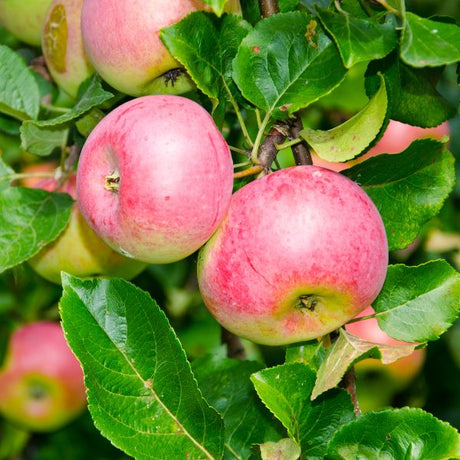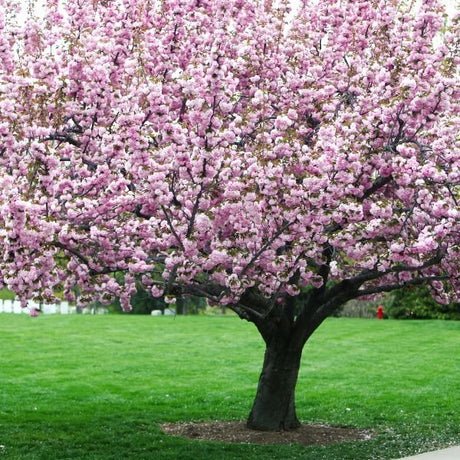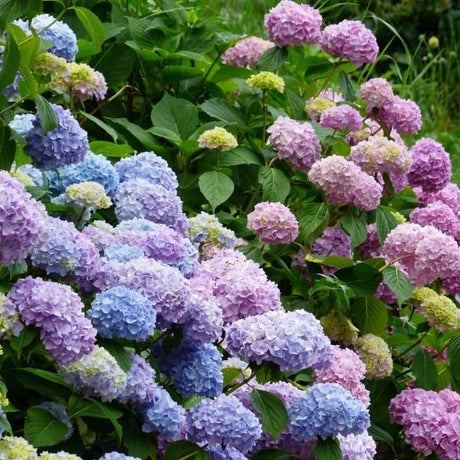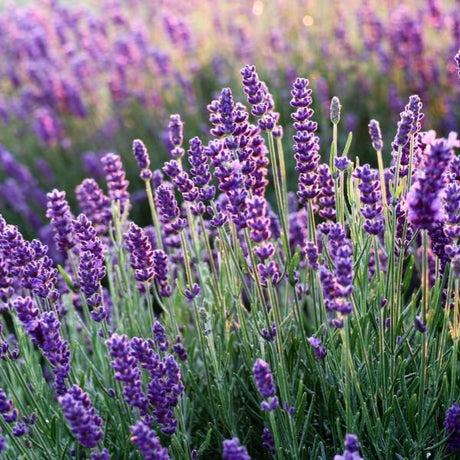Rainier Cherry Tree
- Stay Protected with Plant Sentry ™
Rainier Cherry Tree - #5 Container 4-5 Feet is backordered and will ship as soon as it is back in stock.
Plant Sentry™
Plant Sentry™
Plant Sentry is designed to protect both consumers and the nursery trade from invasive plant pests and diseases. Sites that display the Plant Sentry protection badge are protected from consumers buying and nurseries shipping material carrying invasive pests and diseases.
This proprietary eCommerce software prevents the shipment of a restricted plant to each state. The Plant Sentry system includes a shipment certification program. The Plant Sentry Compliance Officer works closely with NatureHills.com and each nursery or fulfillment center to ensure only compliant plants are sold to customers.
Click Here to learn more

Delivery and Shipping
Delivery and Shipping
Shipping
To obtain a more accurate shipment time-frame, simply enter your zip code in the “Find Your Growing Zone” box to the right. Our plants are grown all over the country and lead time on items may be different because of this. Once your order is placed, you will also receive the specific shipment time-frame information as part of your order confirmation. Once an item ships, you will receive shipment notification and tracking numbers, so you can follow along while your plant travels to your doorstep. We use FedEx, UPS, or USPS at our discretion.
Due to winter weather we have put a hold on shipping to the areas shown below in grey. You can still order now and we will ship the plant to you during an appropriate time for your zone.
Standard Shipping Rates
At Nature Hills we handle, package and ship the products you order with the utmost care to ensure healthy delivery. Shipping and handling charges are calculated based on the tables below. Please note that some items include an additional handling surcharge, these will be noted on the item's product page.
| From | To | S&H |
|---|---|---|
| $0 | $19.99 | $24.99 |
| $20 | $49.99 | $29.99 |
| $50 | $69.99 | $34.99 |
| $70 | $99.99 | $39.99 |
| $100 | $129.99 | $44.99 |
| $130 | $149.99 | $48.99 |
| $150 | $150+ | Approx 28% |
Click here to see our full rates
Buying Options for Plants
Nature Hills sells a large variety of plants with several options available. Plants are offered in both potted containers and as dormant bare root without soil. Here is a helpful resource to understand your options as you create a beautiful landscape with help from Nature Hills.
Ever wonder what a larger plant will mean for your landscape? Container Sizes are really all about the age of the plant!
Seasonally, Nature Hills offers hand selected, high quality bare root trees, shrubs and perennials. Bare root plants are sold by height from the top of the root system to the top of the plant. Plants may be taller than the height minimums.
- Popular sizes of select trees are 1 foot, 2 feet, 3 feet, etc.
- Popular sizes of select bare root plants is 1 foot, 18 inches, etc.
Nature Hills Container Size by Volume
Keep in mind, specific varieties and different growing conditions can affect the rate at which plants grow. Variations in size may occur.
| Young Plants to 18 Months | ||
|---|---|---|
| Size | Volume | |
| 2"x2"x3" | Ranges from | .18 to .21 dry quarts / .198 to .23 dry liters in volume |
| 4.5" Container | Equal to | .65 dry quart / .72 dry liter in volume |
| Sprinter Pot | Equal to | .63 dry quart / .69 dry liter in volume |
| 4" Container | Ranges from | .31 to .87 / .35 to .96 dry liter in volume |
| 6" Container | Equal to | 1.4 dry quarts / 1.59 dry liters in volume |
| 1 Quart | Equal to | 1 dry quart / 1.1 dry liter in volume |
| 5.5" Container | Equal to | 1.89 of a dry quart / 2.08 dry liters in volume |
| 4"x4"x5" | Ranges from | .8 to 1.1 dry quarts / .88 to 1.2 dry liters in volume |
| 4"x4"x6" | Ranges from | 1.0 to 1.3 dry quarts / 1.1 to 1.41 dry liters in volume |
| 4"x4"x9" | Ranges from | 1.1 to 2.1 dry quarts / 1.2 to 2.3 dry liters in volume |
| 4"x4"x10" | Ranges from | 1.7 to 2.3 dry quart / 1.87 to 2.53 dry liters in volume |
| Plants 18 Months - 2.5 Years Old | ||
|---|---|---|
| Size | Volume | |
| 2 Quart | Equal to | 2 dry quarts / 2.2 dry liters in volume |
| #1 Container | Ranges from | 2.26 to 3.73 dry quarts / 2.49 to 4.11 dry liters in volume |
| 5"x5"x12" | Equal to | 3.5 to 4.3 dry quarts / 3.85 to 4.74 dry liters in volume |
| Plants 2 - 4 Years Old | ||
|---|---|---|
| Size | Volume | |
| #2 Container | Ranges from | 1.19 to 1.76 dry gallons / 5.24 to 7.75 dry liters in volume |
| #3 Container | Ranges from | 2.32 to 2.76 dry gallons / 10.22 to 12.16 dry liters in volume |
| Plants 3 - 5 Years Old | ||
|---|---|---|
| Size | Volume | |
| #5 Container | Ranges from | 2.92 to 4.62 dry gallons / 12.86 to 20.35 dry liters in volume |
| #6 Container | Ranges from | 5.25 to 6.01 dry gallons / 23.12 to 26.42 dry liters in volume |
| #7 Container | Ranges from | 5.98 to 6.08 dry gallons / 26.34 to 26.78 dry liters in volume |
Plant Highlights
Rainier Cherry Tree highlights at a glance!
Plant Highlights
Plant Highlights
-
Brand
-
Botanical Name
-
Growing Zones
-
Mature Height
-
Mature Spread
-
Sun ExposureFull Sun
-
Moisture
-
Soil
-
Growth RateMedium
-
Flower Color
-
Fall Color
-
Pollinator Friendly
-
Pollinator Required
-
Bloom PeriodLate Spring
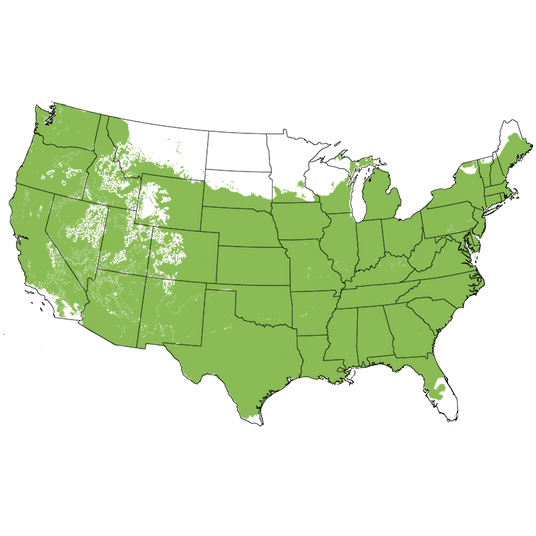
Growing Zones 5-9
Considered to be the finest of the Sweet Cherries! Have you ever enjoyed a bag of succulent Rainier Cherries from a Farmer's Market? Or spent an exorbitant amount per pound at the supermarket? Then you won't want to miss growing the early-bearing, precocious Rainier Cherry (Prunus avium 'Rainier') in your backyard orchard. Rainier is one of the world's sweetest yellow cherries and is in high demand by home gardeners.
Rainier is a pretty, upright Cherry tree. It looks lovely when in full flower, when dripping in glossy fruit, and when covered in its golden fall color. The tree starts bearing fruit at a young age. No wonder, as this low-maintenance tree is easy to grow. It was developed in the Pacific Northwest at Washington State University, and named for the area's highest peak. The super-sweet taste is just as incredible as its namesake, Mount Rainier. It was originally produced by crossing the popular Bing Cherry with the age-old favorite, Van Cherry.
This is an outstanding Sweet Cherry tree that produces large, delicious yellow fruit with a beautiful dark red blush. Plan to start enjoying your delicious harvest in mid-season, when other garden treats are just getting started. You'll adore the pastel spring blooms almost as much as the cherries. The pink-tinted, white blossoms are beautifully displayed upon the bare limbs before leaves emerge.
It's often called a "white cherry" for its creamy, white flesh, or a "blond cherry" for its yellow skin that's blushed red. Rainier is prized for its exceptionally sweet fruit. It is often considered the best yellow cherry ever developed and is even considered by some to be the best of ALL Cherry tree varieties.
The thin-skinned fruit typically has a very high sugar content, measuring in at 20 to 25 Brix rates. These are much higher sugar levels than the Bing Cherry or other red Cherry tree selections. The red fruit makes a wonderfully ornamental display, as well as a delicious crop. In autumn, Rainier puts on another show when its foliage transitions to spicy tones of bronze and yellow.
Planting and Application:
Rainier is a prolific and heavy bearer, even while young. You'll have plenty of sweet and healthy cherries to cook, freeze or just eat fresh right off the tree. Is there anything better? The neighbors will suddenly become much friendlier around the time your tree is dripping in that luscious fruit!
The pinkish-white, scented blooms will attract hoards of butterflies, bees and other beneficial pollinators to do all the pollination work for you. Plus these blooms make your tree look as gorgeous as any other flowering Cherry but with the added bonus of a healthy harvest and fall color too! What a fantastic double-duty edible ornamental!
Place one front and center in your front yard for a specimen planting or adds shade to a backyard garden bench. One would look just as pretty in your Asian-inspired garden reflected in a pool, especially when dripping in flowers or fruit! Be sure to plant Rainier outside a window you often pass by to keep tabs on your tree's beauty (and your harvest). Songbirds love Cherries too, so to ensure you enjoy some of the harvest, you may want to invest in some bird netting - or just go for the gusto and get more Cherry trees so all can enjoy!
Rainier Cherry tree requires cross-pollination for the largest harvest. We recommended you include a later-ripening Sweetheart, Black Tatarian, and even the Montmorency Sour Cherry can be used as a pollinator. You'll enjoy boosted harvests from both trees and extend your harvest by almost a month with a careful selection of later-bearing partner trees. If you don't have room for two trees, try this high-density planting trick and more in our Garden Blog.
- Superior Quality, Exceptionally Sweet Fruit
- Stunning Pink & White Spring Flowers
- Yellow Skin Blushed Carmine
- Mid-Season Harvest of White-Fleshed Large Meaty Fruit
- Golden Yellow Fall Color
- Precocious Variety Starts Bearing Fruit as a Young Tree
- High in Antioxidants - Baking, Fresh Eating & Preserves!
#ProPlantTips for Care:
Cherry Trees need to be planted in full sun and have rich, well-drained soil. Ensure that your planting site has good air circulation, too. Choose a planting site that gets morning sun, if you can. The drying power of the morning sun quickly takes care of morning dew to keep your plants healthy.
Fruiting trees require average moisture throughout the growing season and while many are drought-tolerant, it's best to protect your investment with consistent watering. Cherry trees grow in a wide range of soil types as long as won't become soggy. A generous layer of mulch helps retain soil moisture as well as insulate the root system from heat and chill.
Hardy throughout USDA growing zones 5 to 9, these smaller trees reach 15-25 feet without any pruning and can spread 12-18 feet wide. But you can prune them smaller as needed to accommodate your landscaping needs. Prune fruiting Cherry trees in late winter to open the canopy to sunlight and airflow, to remove dead, damaged or diseased limbs. Prune Cherry trees in spring to shape, and remove water growth or suckers. It's easy to prune Rainier Cherry tree to under 10 feet tall. This is called summer size control pruning, and it makes harvest a lot easier.
- Full Sun
- Regular Moderate Moisture
- Rich Well-Drained Soil
- Appreciates Mulched Beds
- Cold Hardy
- 700 Chill Hours
Watch our YouTube channel and keep an eye on our #ProPlantTips Garden Blog for more information on proven backyard orchard culture techniques!
The only thing that remains is how quickly you can get one in the ground. The sooner you have it planted the sooner you'll be enjoying the finest cherry variety ever created. Order Rainier Cherry tree and its pollinator from Nature Hills today!
Rainier Cherry Tree Frequently Asked Questions
How long does it take for Rainier Cherry Trees to bear fruit?
Nature Hills Nursery sells fruit trees with mature root systems, and will often set fruit in their second or third years.
How Fast Do Rainier Cherry Trees Grow?
Cherry trees are medium-growth rate plants and once they are established they can add 12-18 inches per year or so if given the ideal growing conditions.
Where do Rainier Cherry Trees Grow Best?
Cherry trees grow best in well-drained, fertile soil in at least 6 hours of full sun per day or more. Morning sun is a plus and planting any fruit tree where there is good air circulation keeps the plants stress-free.
Do You Need 2 Cherry Trees to Produce Fruit?
All Prunus varieties have different requirements to set fruit. Rainier is not self-fruiting and needs a pollinating partner. Pair with one of these varieties:
- Sweetheart Sweet Cherry
- Black Tatarian Sweet Cherry
- Montmorency Sour Cherry
No room? Look into High-Density Planting techniques, or choose a semi-dwarf or dwarf fruit tree.
When Should Rainier Cherry Trees be Planted?
Bareroot cherry trees are best planted in the spring but container-grown cherry trees can be successfully transplanted all throughout the growing season as long as the ground isn't frozen and they are carefully watered as needed. Check for first and last frost dates for your area with your local County Extension Office.
How Do I Find Rainier Cherry Trees for Sale Near Me?
Make your life easier and your yard happier by shopping for cherry trees at NatureHills.com online fruit tree nursery. You'll find a massive selection of fruit trees for sale, including many lovely cherry tree varieties!
Choose the right tree for your area by first finding your growing zone by entering your zip code in the field above the Plant Highlights section on our product pages. Narrow down your options by plant hardiness zone, sun availability, and size requirements.
Place your order, knowing it's backed by the Nature Hills Nursery product guarantee and protected by Plant Sentry™, which helps ensure regulated plant materials aren't sent to prohibited areas.
Expect to receive your plants at the appropriate planting time for your growing zone when temperatures are safest.
Super Sweet Yellow Cherry
The Rainier Cherry was a stroke of luck. This selection was not what Washington State University hybridizer Harold Fogle had been expecting in 1952. After crossing a deep dark red Bing Cherry with a deep dark red Van Cherry one of the seedlings was a creamy yellow, slightly red blush-skinned cherry. It looked nothing like either of its two distinctive red parents. Fogle named this selection after Mount Rainier - one of the highest peaks in the Pacific Northwest.
The Rainier is exceptional sweet - much sweeter than either parent when measured in brix, a common sugar rating for fruit. Bing is rated at 17 brix and Van Cherry typically rates around 22 Brix, but the Rainier typically rates at 20 to 25 Brix or higher.
Pioneering fruit growers like Grady Auvil, founder of Auvil Fruit Company in Washington, was one of the first to see the potential in the Rainier Cherry. It produced exceptionally large fruit with sweet, yellow flesh.
Along with the obvious selling points came a few challenges for growers. The Rainier cherry has very thin skin, so the fruit is very sensitive to temperature, wind and rain. Birds eat an estimated 1/3 of the entire crop. This made the Rainier cherry a more expensive Cherry to grow commercially.
For many years, the Rainier was most commonly enjoyed as a home gardener's back yard tree. However, with more attention to commercial farming techniques, Rainier Cherries have now become a delicious common offering at stores and farmers markets each Cherry season.






